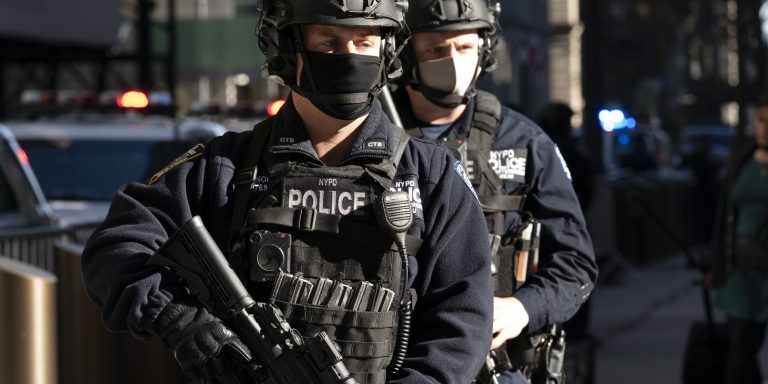
WASHINGTON — Early on a December morning, thousands of German police officers launched a series of raids across the country, arresting 25 people linked to a plot by a far-right group to overthrow Germany’s government.
Additional arrests were made in Austria and Italy — all of them connected to the Reichsbuerger movement (Citizens of the Reich), described by German authorities as a conspiracy-driven group inspired in part by the QAnon movement in the United States.
The arrests, which included a descendant of German royalty, a former lawmaker and a German special forces soldier, sparked calls for the German government to review security measures and investigate the possible infiltration of Germany’s military by extremist elements.
They also highlighted the shifting and increasingly complex landscape facing Western countries in 2022 and, counterterrorism officials say, for years to come.
“There’s a really hard persistent problem,” U.S. Deputy Homeland Security Advisor Joshua Geltzer told the Center for a New America Security, following the raids in Germany.
“There is a transnational dimension to especially the racially or ethnically motivated violent extremist category,” Geltzer added, noting U.S. officials are seeing members of far-right extremist groups travel for training and as well as some money flowing back and forth among different groups.
But most of the activity, according to Geltzer and other officials, involves the sharing of propaganda aimed at recruiting new adherents to the cause.
Those followers include people like American Peyton Gendron, the white 19-year-old gunman who recently pleaded guilty to murder, hate crime and terrorism charges for a May 14, 2022, shooting spree in which he targeted and killed 10 Black shoppers at a grocery store in Buffalo, New York.
In the United States, the growth of such extremist thinking and the threat of individuals taking action “has increased dramatically,” Homeland Security Secretary Alejandro Mayorkas told a conference outside of Washington this past October, further warning of an “increasing level of anti-government sentiment.”
A month later, Mayorkas’ Department of Homeland Security reissued a National Terrorism Advisory System bulletin warning the U.S. is mired in “a heightened threat environment.”
“Lone offenders and small groups motivated by a range of ideological beliefs and/or personal grievances continue to pose a persistent and lethal threat to the homeland,” the department warned in the bulletin.
U.S. officials and experts say making the threat more difficult to contain is that while there is a growing strain of anti-government and anti-authority thinking, the driving force is an ideological fluidity that shows few signs of dissipating.
“I think we are likely to see a continued diversification of the threat,” Colin Clarke, director of research at the global intelligence firm The Soufan Group, told VOA.
“Homegrown violent extremism, jihadist-inspired attacks, and the persistence of the far-right are all likely to remain threats in 2023,” he told VOA via email. “But these could be joined by an upsurge in attacks by other ‘types’ of terrorism, including neo-Luddite/technophobes (attacking infrastructure and 5G networks), so-called ‘Incels,’ a subset of violent misogynists, and conspiracy-driven terrorism, with overlaps to QAnon and other factions heavily influenced by disinformation.”
To cope with the rise in domestic extremism, this past year the U.S. Justice Department set up a new division to deal exclusively with the growing caseload.
Just a month after the Justice Department announcement, a key DHS official warned the threat environment had become more acute.
“We are seeing … increased specificity as it relates to calls for violence,” said John Cohen, the senior official performing the duties of the DHS undersecretary of intelligence and analysis.
Cohen further warned that the domestic rhetoric also had a foreign connection.
Foreign intelligence services and foreign terrorist organizations were also “promoting socio-political content … for the purposes of sowing discord,” he said, noting, “These narratives have, in fact, led to attacks in this country.”
Source: voanews.com
